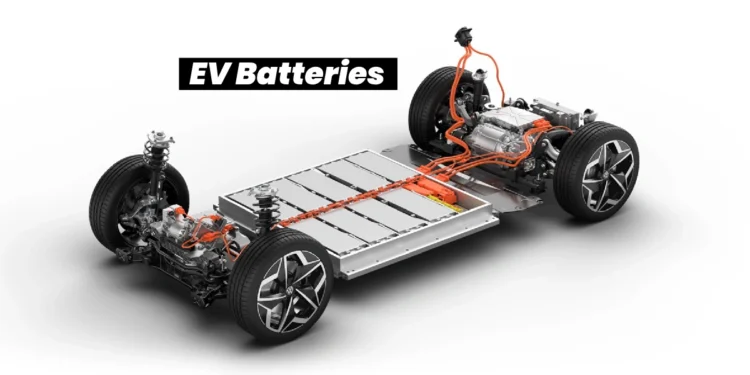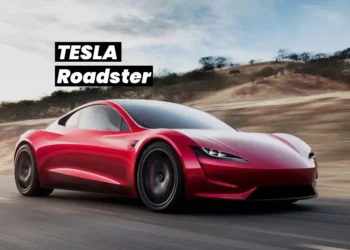Electric Vehicle Battery Warranties And Decay Concerns
In recent times, the surge in popularity of electric vehicles has been nothing short of spectacular. Technological advancements and the evolution of charging infrastructure have ushered in an era where concerns about battery life are somewhat alleviated, or so it seems. However, a lingering question haunts the minds of electric vehicle enthusiasts and potential buyers alike. Picture this: you’ve been zipping around town in your electric wonder for over 5 years, or perhaps you’ve conquered the road, clocking in more than 100,000 kilometers. Will your trusty steed’s power battery withstand the test of time and mileage? Can it soldier on without significant decay? This is the conundrum that grips the minds of electric vehicle aficionados, and the answer lies in the realm of warranty conditions.
Let’s take a moment to dissect the intricacies of battery warranties, the safety net that both comforts and intrigues the discerning electric vehicle consumer. Consider the Tesla Model 3, a beacon of innovation on the electric frontier. This electric titan boasts a battery warranty stretching a remarkable 8 years or 120,000 miles for most models, whichever arrives first. That’s a testament to Tesla’s confidence in their battery technology. And for specific high-mileage use cases like taxi, fleet, or police vehicles, the Tesla’s high-voltage heart (that’s the battery pack) and drive train enjoy an extended serenade of 16 years or 100,000 miles. That’s right, a sweet 16 for the beating heart of your Tesla. Meanwhile, the BYD Han EV paints a different yet equally enticing warranty picture. The vehicle itself enjoys a respectable six years or 150,000 kilometers of coverage. What about the battery cells, you ask? Fear not, for they are promised a lifetime warranty. Not just that, the manufacturers boldly pledge that the battery capacity will not dip below the 70% threshold. It’s warranty poetry for electric vehicle enthusiasts. But and there is always a but, keep in mind that warranty terms might vary slightly depending on your region, so it’s always best to check with your local brand representative for the most accurate details.
As we meld these warranty offerings together, a middling value emerges, a tantalizing five years or more than 100,000 kilometers. It’s at this juncture that the minds of riders are consumed by concerns. How much juice does the electric vehicle’s power battery retain at this critical juncture? Will it be enough to sustain everyday journeys without faltering? Alas, a precise answer to this quandary remains elusive, and no one dares to guarantee the battery’s steadfastness with absolute certainty.
Before you succumb to a maelstrom of worry, let’s shed some light on the brighter side of the electric highway. Reports from electric vehicle pioneers who have traversed the roads for three or four years reveal that battery decay hovers around a modest 10% to 20%. It appears that within the expansive domain of more than 100,000 kilometers clocked in five years, fret not, for the electric car seem to soldier on admirably. The warranty periods bestowed upon the latest electric vehicle models reflect a profound confidence in the relentless march of battery and three-power technology.
In the grand scheme of electric vehicle ownership, a strategic approach can be employed to ensure longevity and optimal performance. Mindful charging and discharging practices come to the forefront. Keep those batteries away from extremes, avoid leaving them fully charged or languishing on low battery for extended periods. Regular TLC is advised, shielding your electric marvel from the perils of high humidity, scorching temperatures, and harsh weather conditions. When venturing into the realm of pure electric cars, make a judicious choice. Opt for vehicles with lengthy power battery warranties, lifetime maintenance policies, or those blessed with replaceable batteries.
It’s imperative to acknowledge that electric vehicles are still finding their footing in comparison to their fossil-fueled counterparts, seasoned with decades of reliability. A well-maintained internal combustion engine can withstand the test of time, with some models boasting a lifespan of 20 to 30 years or amassing over 500,000 kilometers. The road ahead for electric vehicles is undoubtedly exciting, but as we embark on this journey, let’s draw wisdom from the tried and tested reliability of our fuel-powered companions.
In conclusion, as the wheels of progress continue to turn in the electric vehicle landscape, the specter of battery decay after five years or 100,000 kilometers looms, albeit with diminishing intensity. Manufacturers extend reassuring warranties, and early reports paint a picture of resilience. As we navigate the electric frontier, let prudence be our guide, ensuring that our electric steeds not only survive but thrive on the open road for years to come.
















